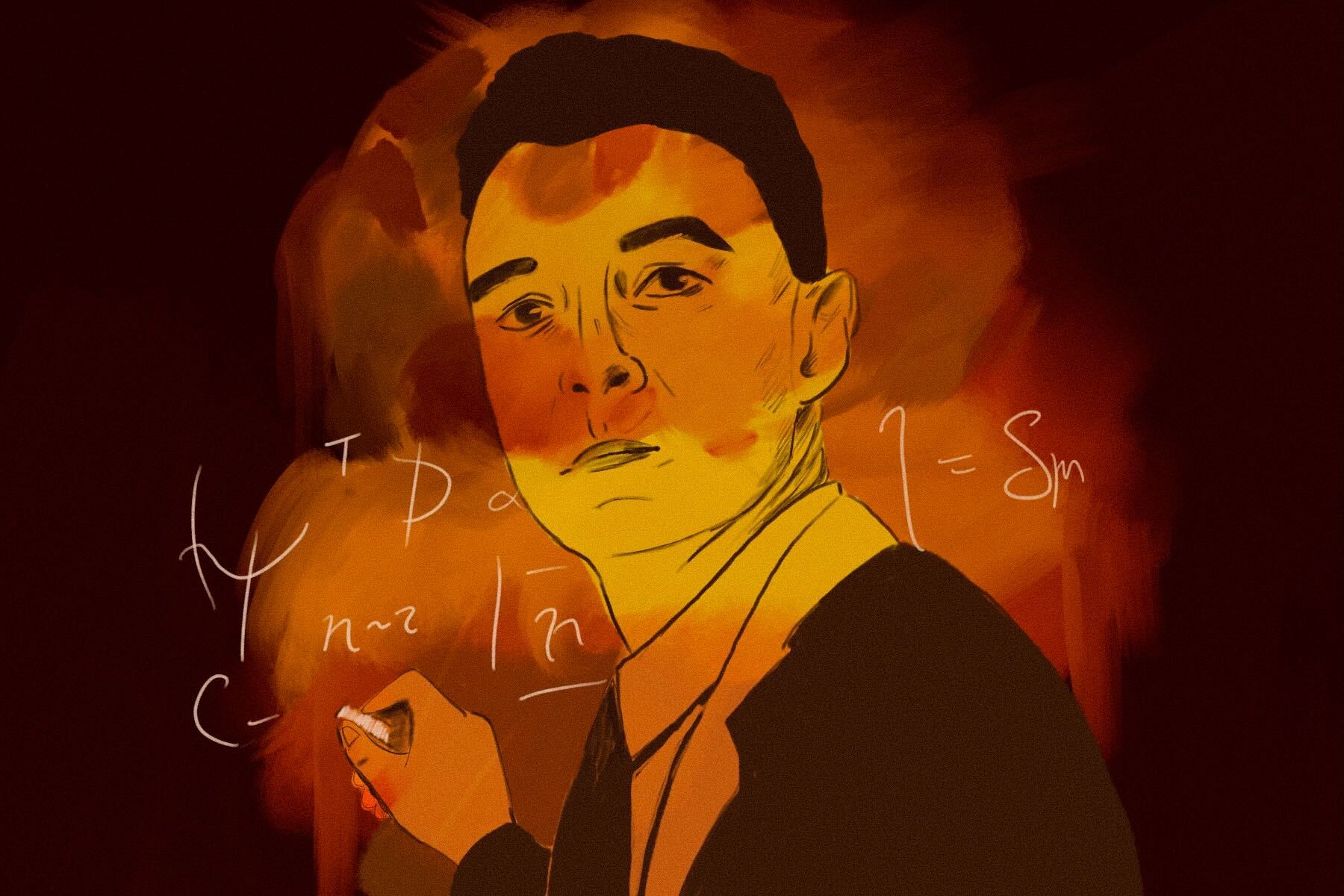Julius Robert Oppenheimer knew the world would not be the same. A few people laughed and cried, yet the majority were silent. His terrifying creation revealed a superpower capable of disintegrating anything in its path. Buildings and cities of all types could become rubble in the blink of an eye, and this destruction became apparent at the conclusion of World War II.
A biographical film based on his life, “Oppenheimer” will be directed by Christopher Nolan and released in July 2023. The movie will chronicle Oppenheimer’s career as the director of Los Alamos Laboratory: a secret laboratory established by the Manhattan Project to develop nuclear weapons. The cast is star-studded, and the few released trailers have made the movie look exhilarating. However, this may be many viewers’ introduction to Oppenheimer. This begs the question: Who was the man who became death?
Oppenheimer was born in April 1904 to German-Jewish immigrants. As a distinguished student at the Ethical Culture School, he excelled in chemistry and physics, graduating as valedictorian in 1921. Oppenheimer attended Harvard as an undergraduate, where he realized his talents in theoretical physics. He later transferred to Cambridge University and the University of Göttingen to complete his graduate studies.
In 1929, he accepted offers to teach at both the California Institute of Technology and the University of California at Berkeley. He divided his time between the two schools, consequently educating multiple classes of ingenious students. In addition to teaching, he conducted research in astrophysics, nuclear physics and quantum field theory, pioneering our understanding of quantum tunneling and black holes.
Prior to World War II, Oppenheimer was reluctant to engage in public or private social affairs; his research was his personal life. This didn’t change until the rise of European political tensions summoned fears into scientific minds, including Oppenheimer’s. He — along with scientists like Albert Einstein and Leo Szilard — feared the possibility of Germany developing nuclear weapons before the United States, so he warned the U.S government of this world-threatening danger.
After the German invasion of Poland in 1939, Oppenheimer investigated the process of separating specific parts of uranium to form the critical mass necessary for the creation of nuclear bombs. In 1942, he was appointed scientific director of the Manhattan Project: the code name for the American secret project of developing the nuclear bomb. The project was housed at Los Alamos in northern New Mexico, where he gathered the most brilliant scientific minds for one goal: ending World War II.
The effort at Los Alamos culminated in the first nuclear explosion in July 1945 — a detonation nicknamed “Trinity.” This operation paved the way for Oppenheimer to be dubbed the “father of the atomic bomb.”
One month later, the US Military dropped two nuclear bombs on the Japanese cities of Hiroshima and Nagasaki. These bombings killed approximately 120,000 people, swiftly concluding Japan’s involvement in World War II. Twenty years after the bombings, Oppenheimer reflected on the development of the nuclear bomb in an NBC interview, famously reciting from the Hindu sacred text, the Bhagavad-Gita, “Now I am become Death, the destroyer of worlds.” While not accurate to the original meaning of the text, Oppenheimer’s visceral articulation demonstrated his thirst for a material experiment that was larger than life itself.
After the war, the government retired the Manhattan Project, and eventually appointed Oppenheimer head of the general advisory committee for the Atomic Energy Commission (AEC). The AEC oversaw all operations related to atomic research. As the chairman, he opposed the proposal and development of the hydrogen bomb, a thermonuclear weapon vastly superior in its cataclysmic damage. This ruling is believed to be based on his regrets for creating the atomic bomb.
His rejection of the hydrogen bomb ignited accusations claiming that he supported the Communist regime. Then-president Truman’s administration believed the hydrogen bomb would end political tensions with the Soviet Union; Oppenheimer’s subversive decision raised queries about his position.
At the height of the Red Scare, Oppenheimer was tried for treason against the United States. He was eventually ruled not guilty of the accusations levied against him. Despite the verdict, the AEC blocked him from obtaining confidential military information, and both his security clearance and his position in the AEC were revoked. Nevertheless, the scientific community was immensely shocked by the AEC’s adjudication.
Oppenheimer’s prior involvement in politics was now irrelevant. He continued working in academia, publishing essays while working as the director of the Institute of Advancement Study at Princeton. In 1963, a decade after being removed from the AEC, he received the AEC’s Enrico Fermi award from President Lyndon B. Johnson in an attempt to rectify the injustice. In 1966, Oppenheimer retired from Princeton, concluding his innovative and eminent career.
Unfortunate news came to Oppenheimer in 1965 when he was diagnosed with throat cancer. On Feb. 18, 1967, the beloved scientist passed away from his illness. While medical reports don’t provide a clear answer for his cause of death, some aspects of his lifestyle, such as his chain-smoking, lackluster diet and various sexual partners are plausible risks that could’ve developed into numerous forms of cancer. It could be argued, however, that his exposure to nuclear material — the substance he constantly studied and developed — may have exacerbated his conditions.
There is no sugarcoating Oppenheimer and his career; he was a genius in every sense of the word. His contributions to the scientific community were momentous, and he should not be bound to his reputation as the “father of the atomic bomb.” The rapid advancement of modern science would’ve been delayed by decades, possibly centuries, if it weren’t for Oppenheimer and his contributions.
If there is one note to make of Oppenheimer, it’s to learn more about him. Nolan’s “Oppenheimer” is set to come out on July 21, 2023, so it may be time to start doing some background research. Read his findings. Understand his achievements. Find that passion for what you love and strive for it in the same way he dedicated himself to science.

















